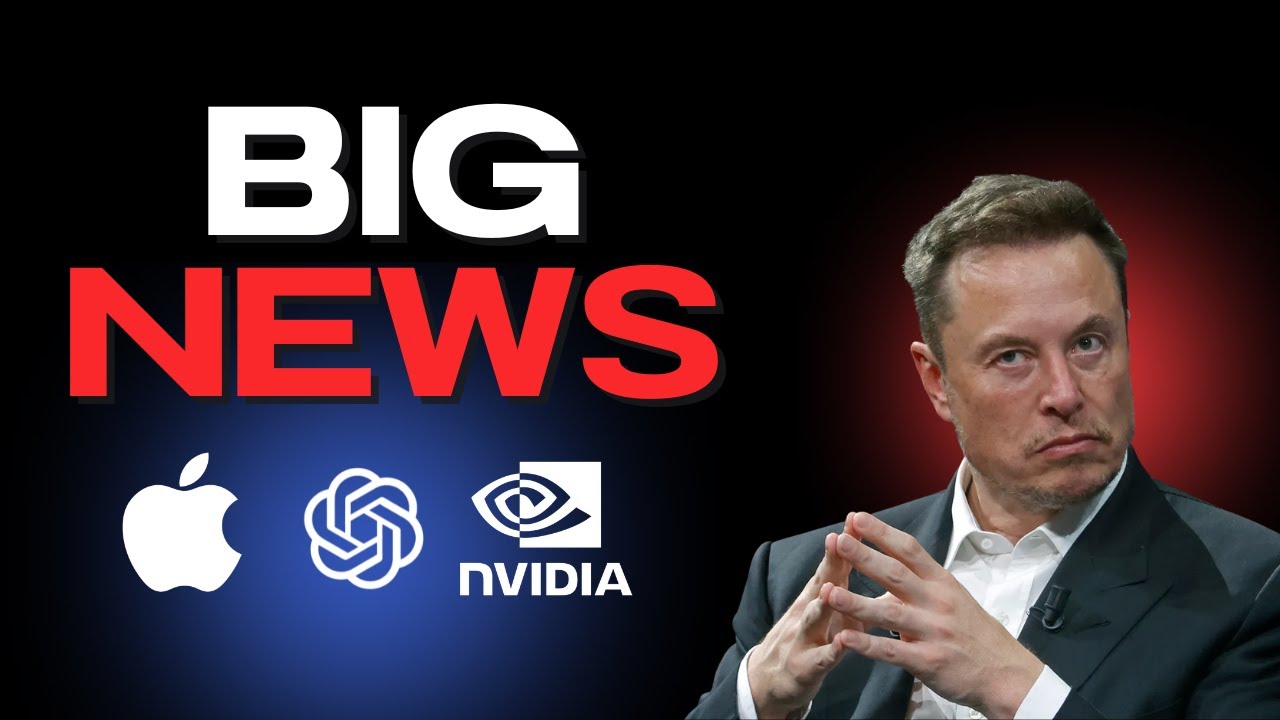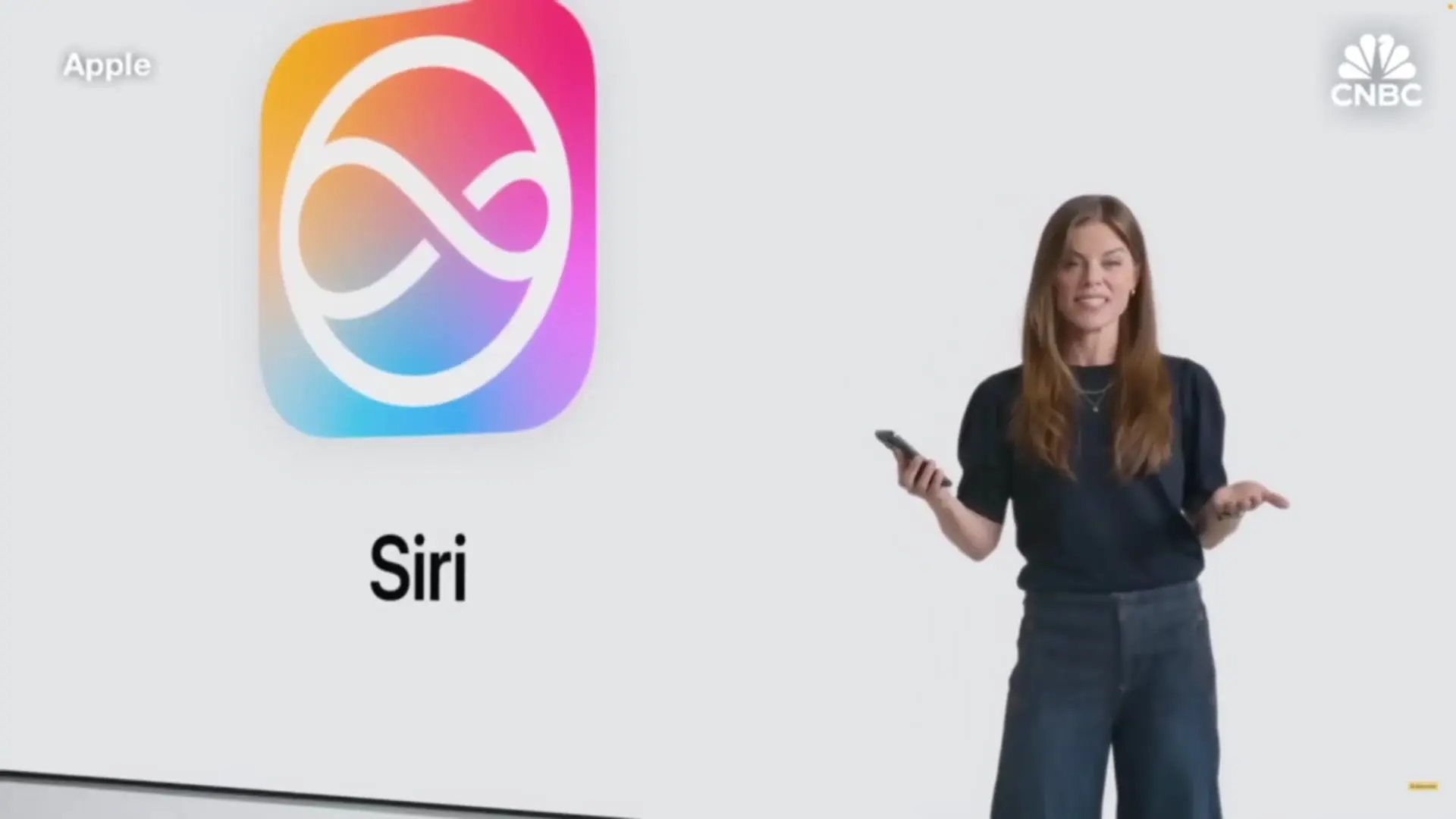
The artificial intelligence landscape is evolving rapidly with major tech players making significant strategic moves. Apple, often criticized for lagging behind in AI development, appears to be changing course with potential acquisitions and promised upgrades to Siri. Meanwhile, industry dynamics are shifting as OpenAI expands globally and Elon Musk challenges what he sees as anti-competitive practices.
Apple's Potential AI Acquisitions: Mistral AI and Perplexity AI
According to recent reports, Apple has been internally discussing the acquisition of two rising AI companies: Mistral AI and Perplexity AI. These potential acquisitions signal Apple's determination to strengthen its position in the competitive AI market.
Mistral AI, based in France, has quickly established itself as one of Europe's leading AI companies in less than two years. What makes Mistral particularly attractive is its open-source approach, allowing developers worldwide to use their models. The company has drawn comparisons to industry leaders like Anthropic and OpenAI but differentiates itself with a European perspective that emphasizes openness and collaboration.
Perplexity AI offers something different but equally valuable—an AI-powered search engine built on large language models. Unlike traditional search engines that provide links, Perplexity delivers clear, direct answers with cited sources. Its intuitive interface and efficiency have led some users to adopt it as an alternative to Google for everyday searches.
Why These Acquisitions Matter for Apple's AI Strategy
Apple's interest in these companies reflects a strategic shift in its approach to AI. Despite integrating machine learning features into iPhones and Macs, Apple's AI capabilities—particularly Siri—have appeared outdated compared to competitors like ChatGPT and Google's Gemini.
- Acquiring Mistral AI would give Apple immediate access to advanced AI models
- Perplexity AI could transform Siri into a competitive search and information tool
- These acquisitions align with Apple's privacy-focused approach to technology
- The moves could help Apple catch up to competitors who have been building AI capabilities for years
Perhaps most intriguing is how these acquisitions could support Apple's privacy-first philosophy. By integrating Perplexity's search capabilities with Apple's ecosystem, the company could potentially offer a privacy-focused alternative to Google—something that would likely resonate with its billion-plus iPhone users worldwide.

Siri's Promised Transformation
Beyond potential acquisitions, Apple's engineering leadership has acknowledged Siri's limitations and promised substantial improvements. Apple's engineering chief has indicated that the upcoming Siri update will represent a more significant leap forward than anticipated.
The revamped Siri is expected to move beyond basic commands to offer capabilities similar to modern AI assistants, including summarizing long articles, creating schedules, planning trips, and engaging in meaningful conversations. These improvements would address the functionality gap that has led many Apple users to rely on third-party AI tools instead of Siri.
With over a billion iPhones in use globally, a significantly improved Siri could rapidly change how people interact with their devices and potentially reposition Apple as an AI leader. However, the question remains whether Apple can close the gap quickly enough to compete with companies that have been focusing on conversational AI for years.
Nvidia's Perspective on the AI Boom
While Apple works to strengthen its AI position, Nvidia CEO Jensen Huang has emphasized that the AI boom is still in its early stages. Despite some investor concerns following softer sales forecasts, Huang maintains that long-term demand for AI infrastructure remains substantial, with potential spending on AI data centers potentially reaching trillions of dollars by 2030.
This perspective matters because Nvidia produces the chips powering most advanced AI models, including those from OpenAI, Anthropic, and Google. As the foundation of the AI industry, Nvidia's outlook provides insight into the sector's trajectory and explains why AI applications are proliferating across industries.
OpenAI's Global Expansion
OpenAI is also making significant moves, planning a massive new data center in India with at least one gigawatt of power capacity—enough to power hundreds of thousands of homes. This facility represents more than just additional computing power; it's a strategic expansion into a region with cheaper energy costs, a growing pool of engineering talent, and proximity to billions of potential users across Asia.

This development highlights the globalization of AI infrastructure beyond Silicon Valley, with major projects emerging in Europe, the Middle East, and now India. The expansion could improve access to AI services and potentially lower costs for users in these regions.

Elon Musk's Lawsuit Against Apple and OpenAI
Adding complexity to the AI landscape, Elon Musk's company xAI has filed a lawsuit against Apple and OpenAI. The lawsuit alleges that Apple provides unfair advantages to OpenAI, particularly through App Store policies, creating an anti-competitive environment that harms smaller AI companies like xAI.
This legal challenge could have far-reaching implications for the AI industry. If successful, it might prompt regulators to implement measures ensuring more open competition, potentially leading to greater innovation, more consumer choices, and lower costs. Conversely, if the current dynamics persist, the AI market could become increasingly dominated by a small number of large companies controlling access to the technology.
Implications for the Future of AI
These developments collectively paint a picture of an AI industry in transition. Apple's potential acquisitions and Siri upgrades suggest that AI capabilities will become more deeply integrated into mainstream consumer devices. Nvidia's outlook indicates continued growth in AI infrastructure, while OpenAI's expansion demonstrates the global nature of this technology revolution.
Meanwhile, Musk's lawsuit raises important questions about competition and access in the AI market. As these stories unfold, they will shape not just how AI develops technologically, but also how it's regulated, who controls it, and ultimately how it impacts our daily lives.
- Apple appears to be accelerating its AI strategy through potential acquisitions and Siri improvements
- The AI infrastructure market continues to expand globally, with significant investments in data centers
- Questions about competition and market dominance are emerging as the AI industry matures
- These developments will influence how AI technologies are integrated into products and services we use daily
What This Means for Consumers and the Industry
For consumers, these developments could lead to more capable AI assistants on Apple devices, potentially changing how we interact with technology. The expansion of AI infrastructure globally may improve access and performance for users outside North America and Europe.
For the industry, Apple's moves signal increased competition in the AI space, while legal challenges may shape regulatory frameworks. As companies invest billions in AI capabilities, we can expect continued rapid advancement in what these systems can do—and potentially new questions about how they should be governed.
The AI landscape is clearly at an inflection point, with major players positioning themselves for the next phase of development. Whether through acquisitions, infrastructure investments, or legal challenges, the decisions being made now will influence the trajectory of artificial intelligence for years to come.
Let's Watch!
Apple's Bold AI Strategy: Potential Acquisitions and Lawsuit Challenges
Ready to enhance your neural network?
Access our quantum knowledge cores and upgrade your programming abilities.
Initialize Training Sequence